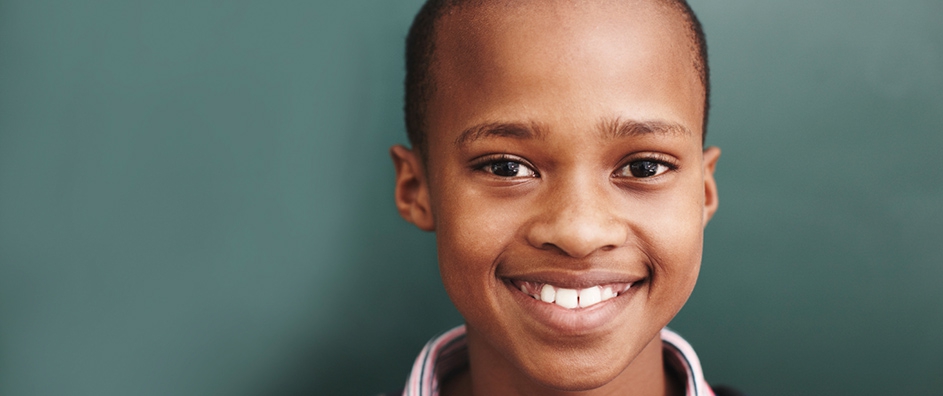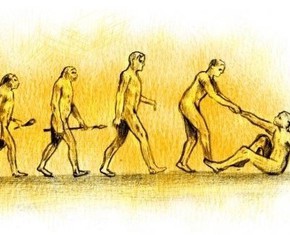The views expressed in our content reflect individual perspectives and do not represent the authoritative views of the Baha'i Faith.
I want to ask you to meditate, just for a few moments, on something you probably rarely think about—your character. Here’s the question: where did your character come from?
Got it? Consider it for a while. Think back, all the way to your childhood, and try to remember where you got your character.
Most of us develop our inner character, the virtues and traits that define us, at home. We initially learn character, as we do most things, from our parents. If we have parents with admirable traits, we tend to imitate and develop those traits. If we have parents with traits and behaviors that aren’t so admirable, we sometimes adopt that approach to life, and reap the consequences. But somehow, even people with poor parental influences sometimes grow up with virtuous and praiseworthy characters. How does that happen?
I have a friend who grew up in a very dysfunctional household—her parents, both drug addicts, supported their habits with a wide variety of criminal activities. As a child, she endured some truly harrowing experiences, surrounded by extremely negative influences and subjected to parents who lied, cheated and stole from others on a regular basis. Amazingly, though, she didn’t become like her parents—instead, as an adult, she became an honest, kind and thoughtful person. I asked her once how that happened, and she said “When I got old enough to realize that my parents weren’t good people, I decided to do the opposite of what they did. Mostly, that was because I had a friend in school who was nice and kind to me, and I wanted to be more like her.”
The power of example, of deeds and not words, influences character more than any other factor. We all want to educate our children to be good, moral adults—but the true path to that education doesn’t come from what we tell our kids, it comes from the behavior they see and naturally want to emulate. We teach good character with good character; and my friend, luckily, found someone in her environment who had learned honesty and kindness and could pass it on to her.
The Baha’i teachings say that nothing is more important than teaching good character to children:
The root cause of wrongdoing is ignorance, and we must therefore hold fast to the tools of perception and knowledge. Good character must be taught. Light must be spread afar, so that, in the school of humanity, all may acquire the heavenly characteristics of the spirit, and see for themselves beyond any doubt that there is no fiercer hell, no more fiery abyss, than to possess a character that is evil and unsound; no more darksome pit nor loathsome torment than to show forth qualities which deserve to be condemned.
The individual must be educated to such a high degree that he would rather have his throat cut than tell a lie, and would think it easier to be slashed with a sword or pierced with a spear than to utter calumny or be carried away by wrath.
Thus will be kindled the sense of human dignity and pride… Then will each one of God’s beloved shine out as a bright moon with qualities of the spirit, and the relationship of each to the Sacred Threshold of his Lord will be not illusory but sound and real, will be as the very foundation of the building, not some embellishment on its facade.
It followeth that the children’s school must be a place of utmost discipline and order, that instruction must be thorough, and provision must be made for the rectification and refinement of character; so that, in his earliest years, within the very essence of the child, the divine foundation will be laid and the structure of holiness raised up.
Know that this matter of instruction, of character rectification and refinement, of heartening and encouraging the child, is of the utmost importance, for such are basic principles of God. – Abdu’l-Baha, Selections from the Writings of Abdu’l-Baha, pp. 136-137.
The power of example influences children more than any other factor, psychologists have learned. When the psychologist J. Philippe Rushton gave 140 elementary- and middle-school students tokens for winning a game, he explained that they could either keep the tokens or donate them to a child who lived in poverty.
The children in the experiment initially watched a teacher play the game—either selfishly or generously—and then lecture them on the value of keeping the tokens for themselves or giving to others.
Rushton found that the adults’ influence made a big difference: when the teacher behaved selfishly and kept the tokens, the children did the same. But when the adult acted generously, the students did, too—and they did so regardless of the content of the teacher’s lecture. When the teacher acted generously, the children donated 85% more than the norm. The conclusion? Actions speak louder than words, and children learn generosity, not by listening to what their role models say, but by seeing what they do.
The Baha’i teachings strongly emphasize the power of action, and counsel every parent to educate their children with their deeds:
O Son of My Handmaid! Guidance hath ever been given by words, and now it is given by deeds. Every one must show forth deeds that are pure and holy, for words are the property of all alike, whereas such deeds as these belong only to Our loved ones. Strive then with heart and soul to distinguish yourselves by your deeds. In this wise We counsel you in this holy and resplendent tablet. – Baha’u’llah, The Hidden Words, pp. 48-49.
When a person’s life is purely moral, when his daily actions are propelled by ethical forces he will influence tremendously the lives of those who come in touch with him. – Abdu’l-Baha, Star of the West, Volume 4, p. 184.
Next: Giving Children High Ideals and Goals
















Comments
Sign in or create an account
Continue with Googleor